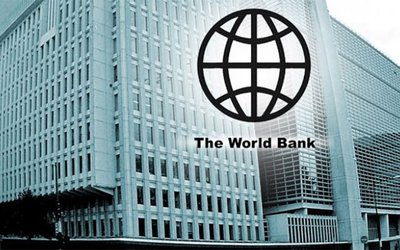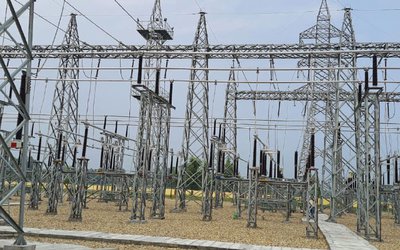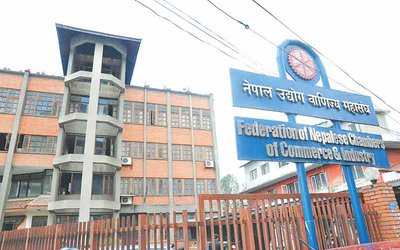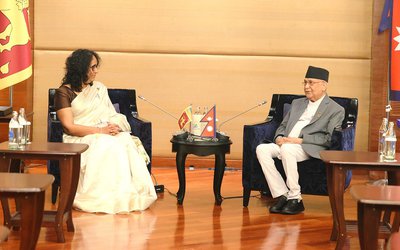
A joint statement issued by SAWTEE and RIS, New Delhi calls for creating a South Asian ‘Arc of Peace-Creating Prosperity’
Progress in South Asia in terms of economic integration and the performance of the SAARC as an institution have remained debatable. While there is no denying the fact that the South Asian economic integration has to travel a long and winding road, it must be acknowledged that the region has also achieved certain milestones.
According to joint press release issued by SAWTEE, Kathmandu and RIS, New Delhi, these include progress made in the realms of free trade in goods and services, establishment of the SARRC Development Fund, commencement of the South Asian University and Convention on Cooperation on Environment, among others.
What is more, the region has emerged as ‘second’ fastest growing region in the world with an average rate of growth of 6.4 per cent expected to be sustained through 2016, according to the latest World Bank estimates. This is particularly significant as a higher economic growth trajectory in South Asia will contribute towards region’s ability to fight the scourge of poverty and unemployment.
A New Report by the New Delhi based premier think-tank, the Research and Information System for Developing Countries (RIS), was launched in cooperation with South Asia Watch on Trade, Economics and Environment (SAWTEE) in Kathmandu on the eve of the 18th SAARC Summit.
The Report focuses on measures that focus on creation of enhanced economic activities and employment generation through economic integration. This, in turn, can be peace-creating. The approach is novel in the sense that it argues for not waiting for peace to descend for regional cooperation initiatives. Instead, the Report emphasizes on ‘reverse causality’ from prosperity to peace rather than from peace to prosperity.
In this endeavor, Dr Posh Raj Pandey, Chairman, SAWTEE; highlighted that SAARC must create further enabling environment for scaling up economic integration in the South Asian region. He emphasized upon full implementation of SAFTA and conclusion of trade in services negotiations at the earliest.
He mentioned that the report argues peace and stability in the region would be a fool’s dream, if we do not have requisite prosperity and social development. Regional prosperity would be possible only if we act together to integrate our economies – integrate trade, integrate growth process, integrate investment opportunities, harmonize policies and institutions. For this, we need to change our mind set, bridge the perception gaps, address unfair bias, create an ‘Arc of Peace-Creating Prosperity’ and craft a region what Rabindra Tagore said ‘ where mind is without fear’.
He commended that the Report quite rightly keeps the challenges facing the SAARC region in focus by linking the issues of macroeconomic stability, development cooperation, energy, food and environmental security.
Dr Ram Upendra Das, Professor, RIS and the main author of the Report argues how intra-regional trade in SAARC is not low and it is low due to a statistical anomaly. In fact, several countries of the region have very high intra-SAARC trade linkages as a share of their overall trade, making SAARC as much attractive to them as much an EU member finds the EU to be.
He also underscored that the perceptions in several SAARC countries about the seriousness with which SAARC economic integration needs to be pursued has changed for better and has become more positive. However, some perception gaps still remain and it would be imperative to address them at the earliest.
According to jointly issued press release some of the major policy recommendations made by the Report include:
• Policy Consolidation: The Report calls for policy consolidation rather than SAARC spreading itself too thin on its agenda and emphasizes on increasing the economic content of the SAARC process.
• Positive Perspective: It has been shown in the Report’s analysis that the SAARC economic integration is neither low nor slow when compared to other regional groupings.
• Focus on Financing Development: The Report supports creation of the SAARC Development Bank as financing is the most important bottleneck in big infrastructural projects due to low rates of return. This is even more complicated when the projects are regional in nature.
• Beyond Connectivity: The Report recommends that connectivity projects need not be viewed from ‘projects-to-economic activity’ rather than other way round. With economic prosperity through trade in goods, services and investment etc., infrastructure gaps begin to be filled as they become more rewarding spill-over effects arising due to inter-linkages with other sectors.
• SAARC Investment Area: Given the supply constraints in the region, a SAARC Investment Area needs to be created, even to the extent that SAARC members take advantage of the credit ratings of other SAARC members.
• SAARC Development Forum: A SAARC Development Forum to improve aid effectiveness, sharing of best practices and enhancing development cooperation in the region must be created as SAARC countries are replete with successful developmental projects and experiences.
• Health and Student Visas: The Report supports the proposals that can facilitate emergency health situations when a person can be given visas on an urgent basis for travelling to another country for treatment. Similarly, student visas need to be given priority under Mode 4 of the trade in services agreement.
• Mutual Recognition of Academic degrees: One major recommendation of the Report is to have mutual recognition agreements of degrees of professional under the services’ trade agreement.
• Economic Integration with a Human Face: By giving adequate emphasis to health, education and professionals’ jobs ij each other’s countries, the Report focuses on economic integration that is with human face. In this, the Report, includes analysis and policy recommendations on a whole host of issues pertaining to Food security, energy security, environmental and financial security – through employment generating prosperity, that is final ‘peace-creating’.
- IME GROUP: Expands Into Paper Industry
- Mar 24, 2025
- CPN UML: Instigated By India
- Mar 23, 2025
- ADB’S CHIEF ECONOMIST: Nepal Reduces Poverty
- Mar 11, 2025
- FM DR. DEUBA: A Successful Visit
- Mar 11, 2025
- MD GHISING: Target Of Personal Grudge
- Mar 09, 2025














